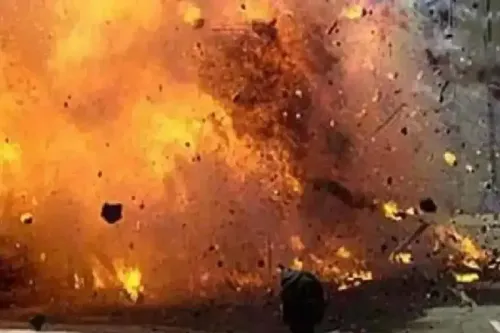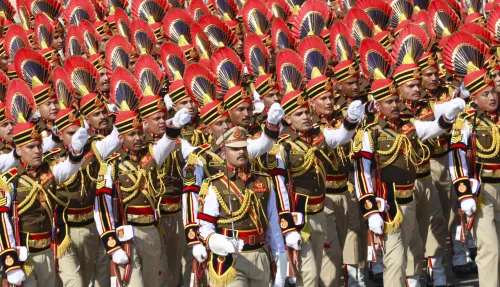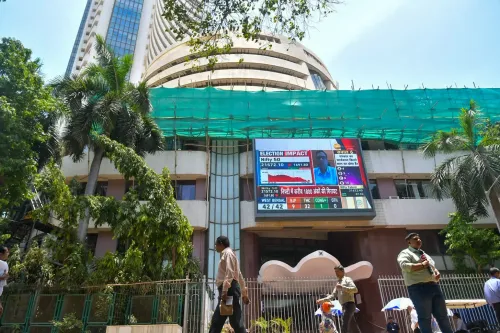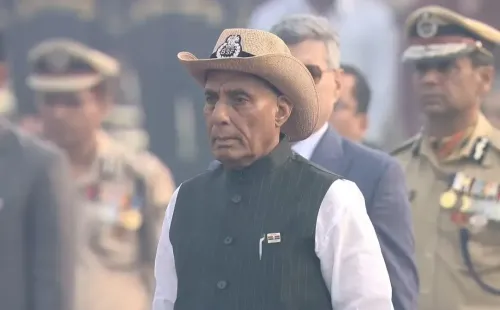Did Rahul Gandhi Insult the Indian Army?
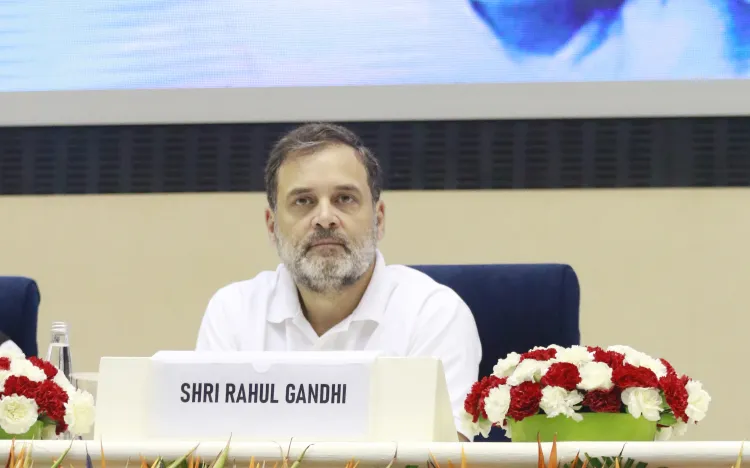
Synopsis
Key Takeaways
- The Supreme Court has emphasized the need for responsible political discourse.
- Statements regarding national security must be backed by credible evidence.
- Political leaders face scrutiny for comments that could demoralize armed forces.
- Legal proceedings can be initiated against public figures for alleged defamation.
- Public trust in political leaders is crucial for national morale.
New Delhi, Aug 4 (NationPress) The Supreme Court reprimanded the Leader of Opposition in the Lok Sabha and Congress MP Rahul Gandhi for his alleged comments deemed disrespectful towards the Indian Army.
During the Bharat Jodo Yatra, Gandhi reportedly claimed, “Chinese troops are beating Indian Army soldiers in Arunachal Pradesh,” in reference to the December 9, 2022, confrontation in the Tawang sector.
A Bench led by Justices Dipankar Datta and Joymalya Bagchi voiced their disapproval of Gandhi’s assertion that 2,000 square kilometres of Indian territory had been taken over by China, stating, “If he were a true Indian, he would not have made such statements.”
The Bench questioned, “How can you claim that 2,000 square kilometres of Indian land were seized by the Chinese? Were you present? Do you possess any credible evidence? If you were genuinely a true Indian, such remarks would not be made. Is it unusual to have casualties on both sides during border conflicts?”
The court further asked senior advocate Abhishek Manu Singhvi, representing Gandhi, why these statements were made on social media rather than in Parliament.
This situation unfolded after Singhvi argued that it would be unfortunate if an opposition leader was barred from discussing national issues in the media.
The Supreme Court consented to review Gandhi’s plea, which addresses the necessity of mandatory notice to the proposed accused during the pre-cognisance phase, and requested responses from the Uttar Pradesh government and the complainant.
Additionally, the Justice Datta-led Bench granted interim relief to Rahul Gandhi against the summons issued by the Lucknow court.
The complainant, Udai Shankar Srivastava, a retired Director from the Border Roads Organisation, claimed that Gandhi's remarks were “false and unfounded,” aimed at “demoralizing the Indian Army” and harming national morale.
Earlier, in May, the Allahabad High Court dismissed Gandhi’s request to dismiss the criminal defamation case, rejecting the argument that the complainant lacked legal standing since he wasn't directly named.
A single-judge Bench led by Justice Subhash Vidyarthi determined that even a third party may be seen as an “aggrieved person” if they suffer harm from defamatory statements.
It stated, “The trial court rightly decided to summon the applicant (Gandhi) for trial under Section 500 I.P.C. after considering all pertinent facts and circumstances.”
Declining to invoke its inherent powers, the Allahabad High Court noted that the trial court’s summons order dated February 11, 2025, “did not have any legal flaws” and chose not to interfere.
Subsequently, Gandhi appeared at the MP-MLA court in Lucknow and received bail after providing a personal bond of Rs 20,000 along with two sureties of the same amount.
Simultaneously, he approached the Supreme Court to contest the Allahabad High Court’s ruling denying the quashing of the defamation case against him. The trial court had previously issued several summons to Rahul Gandhi, but he failed to appear.

